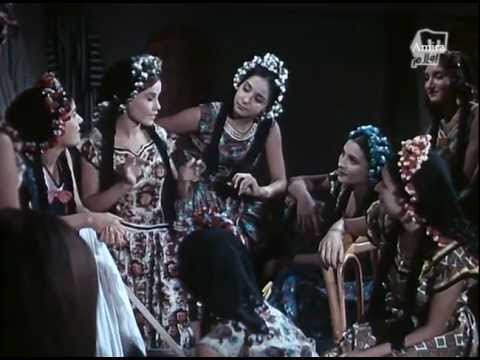
The fashion, the lyrics, the music, the grandness of it all; they just don’t make musical films in Egypt like they used to – in fact, they don’t really make them at all anymore.
No contemporary Egyptian film compares to those classic old school musicals that most Egyptians grew up watching and loving. So much so, that perhaps almost everyone immediately knows the tune that accompanies the phrase ‘do’o el shamasi’ (place the parasols).
Perhaps almost everyone also remembers being mesmerized by Fayrouz’s immense talent at such a young age, as she seamlessly manages to tap dance her way into our hearts every time any of her films come on.
In any case, below are eight classic Egyptian musical films that act as a time capsule to a revered age in Egyptian cinema, full of passion, memories and music.
Albi Dalili (My Heart is my Guide – 1947)
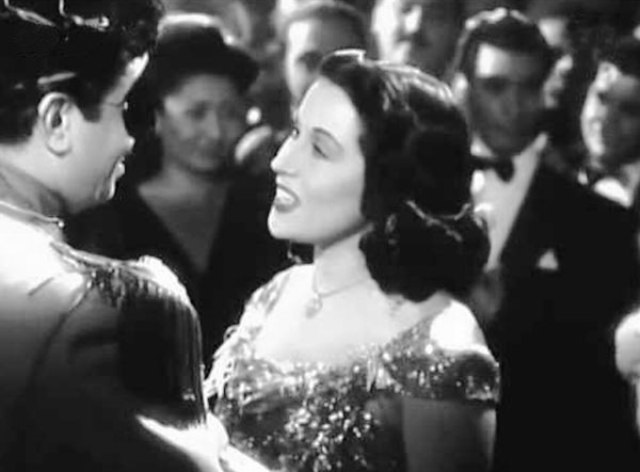
A wonderful black and white classic, this 1947 film stars Anwar Wagdy and Leila Mourad. This action-filled romance tells the story of one woman’s mistaken identity (Mourad) and how she gets tangled up in a police-gang chase; in the midst of it all, she falls in love with a police officer (Wagdy) as does he fall in love with her. Of course, the film’s particular standout song is the one carrying the same name as the film itself, Leila Mourad’s moving ‘Ana Albi Dalili’ (My Heart is my Guide).
Anbar (1948)

Also starring dynamic silver screen duo Anwar Wagdy and Leila Mourad, Anbar tells the story of a map to a family fortune that is hidden in a dress. The story involves a theatre, performances, costumes, evil family members running after the family fortune and of course, love. As ‘the bad guys’ try to race ‘the good guys’ to the family fortune, Mourad and Wagdy’s characters fall in love and many fantastic performances take place.
Afrita Hanem (Little Miss Genie – 1949)

Starring the musically renowned Farid el Atrash and Samia Gamal, Afrita Hanem revolves around the love of a poor singer (Atrash) to his boss’s rich daughter. With the help of a genie, he manages to succeed in his career and climb the social ladder enough to get his love interest’s attention. Things take a turn however, when the genie (Gamal) falls for him. The events that unfold innovatively and entertainingly portray the message that someones what one desires may not be what one needs, and that destiny has something else in store.
Yasmin (1950)
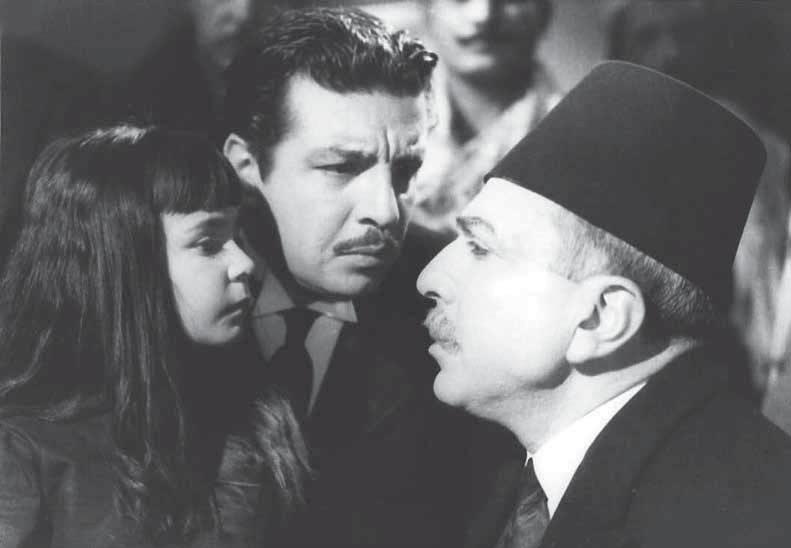
This gem of a film stars the magnificent Fayrouz, Egypt’s most beloved child star. A singer, dancer and all around charming performer, Fayrouz stars in this musical film all about a poor orphaned child who teams up with a fellow poor man (Anwar Wagdy) in attempts to gather some money performing the streets together. They somehow end up in the home of a wealthy family who want to help the duo. One thing leads to another, and we eventually find out that Yasmin’s (Fayrouz) background is not what it actually seems and there may be closer links to this wealthy family than originally expected.
Enta Habibi (You are my Love – 1957)
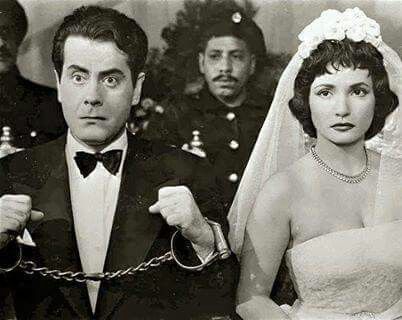
Somewhat of a predictable storyline, but presented beautifully in the form of this musical film, Enta Habibi is a story about when true love is found. The film stars Farid el Atrash and Shadia, whose characters are cousins. They are expected to marry in order to inherit a family fortune, however they both have other love interests. They agree to marry for a month until documents of the inheritance are finalized and then divorce once they are. During their month of marriage however, things take a turn and unexpected events and feelings arise.
Agazeit Nos el Sana (Mid-Year Break – 1962)
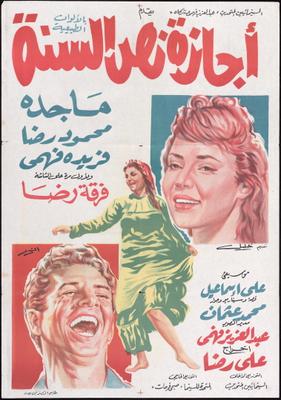
This film can act as the perfect introduction to the exhilarating Egyptian folklore dance troupe Ferkeit Reda (Reda’s Troupe). Set during a mid-year break, a young man (Mahmoud Reda) who has been studying in Cairo decides to return to his rural village with friends from his dance troupe in order to rehearse for their end of year performance. Whilst there, the young man and his cousin (Magda) face various obstacles as a result of the young man’s strict father. As events unfold and love ensues, the young man eventually musters up the courage to face his father and stand up for both himself and his cousin… all while performing various song and dance numbers that leave audiences speechless.
Gharam fel Karnak (Love at Karnak – 1965)
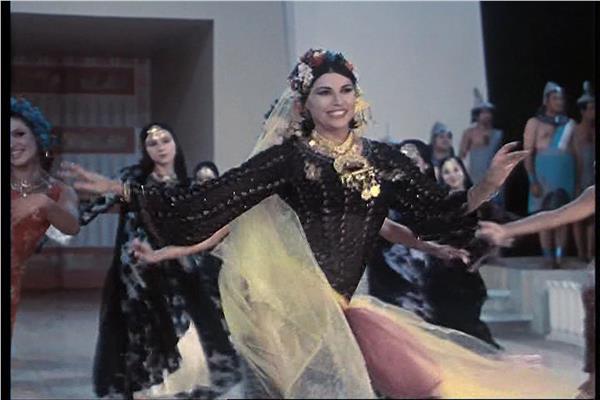
Nothing will make you feel like going to Luxor more than Gharam fel Karnak, which also features the magnetic Egyptian folklore dance troupe Ferkeit Reda (Reda’s Troupe). As the name suggests, the film is about a couple from a school dance team who have feelings for each other. The main dancer of the team however (Mahmoud Reda), thinks his love interest is interested in someone else. Confusion ensues, alongside amazing song and dance numbers, set against the majestic backdrop of Luxor and its temples.
Abi Fawk al Shagara (My Father is in the Tree – 1969)
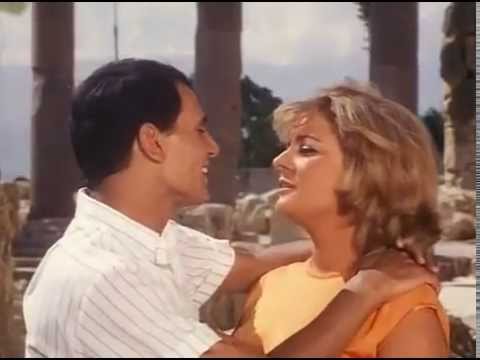
A classic Abdel Halim Hafez film, Abi Fawk al Shagara tells the story of a young man (Hafez) who travels to Alexandria for the summer. There, he meets his friends and his childhood love interest (Mervat Amin) and he spends his days on the beach with them or enjoying a simple night out with them at the movies. When he feels as though his love interest in avoiding them being alone together, he gets upset and goes to the local cabaret, where he meets the venue’s star dancer (Nadia Lotfy). They fall in love and chaos ensues as he falls into the dark life of the cabaret. The film is both gripping and entertaining, full of beloved classic songs such as “do’o el shamasi’ (place the parasols).
*Featured image from left to right: ‘Enta Habibi’ official poster, ‘Yasmin’ official poster, ‘Albi Dalili’ official poster (image sources unknown)




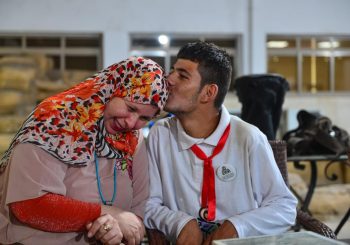

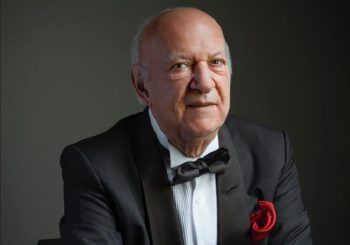
Comment (1)
[…] Singalongs and Big Dance Numbers: 8 Classic Egyptian Musical Films From Back in the Day […]